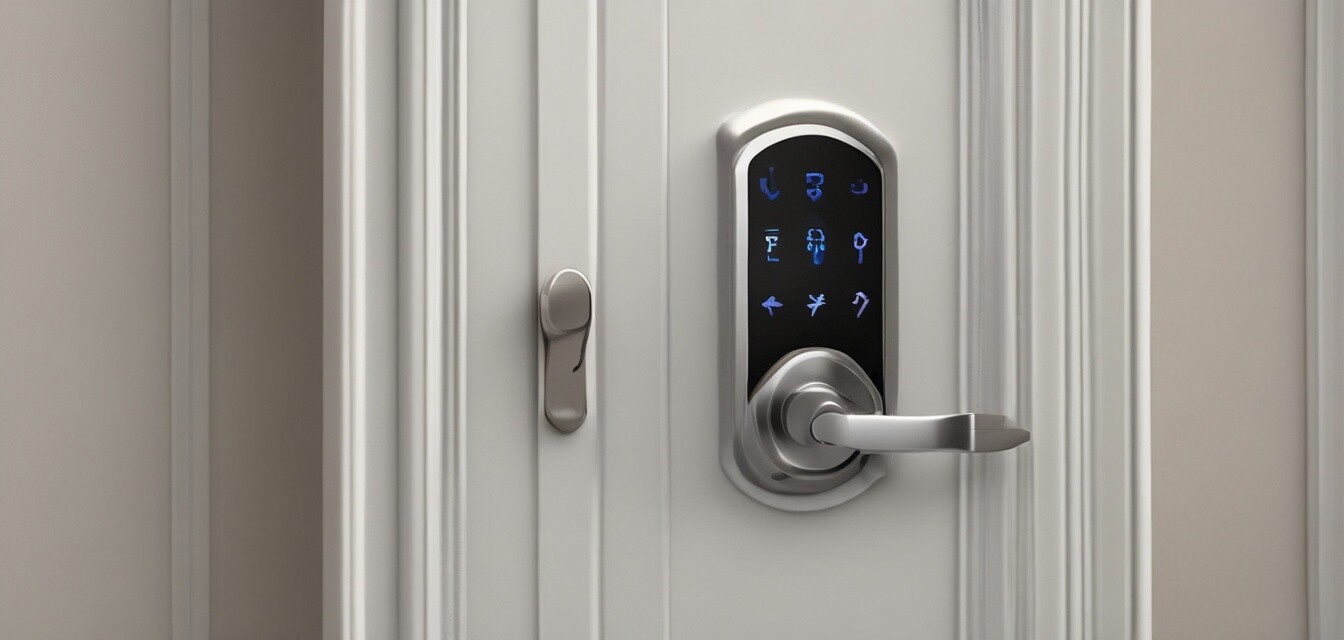
Smart Locks: Key considerations when choosing
Key Takeaways
- Smart locks enhance home security with advanced locking mechanisms.
- Consider compatibility with your existing home automation system.
- Look for security features like encryption and two-factor authentication.
- Evaluate the ease of installation and battery life.
- Smart locks offer convenience through remote access and monitoring.
Selecting the right smart lock can dramatically increase your home security while offering convenience that traditional locks cannot match. With a variety of features and functionalities available, it’s essential to understand what to look for to ensure you choose the best smart lock for your needs. In this guide, we will delve into key considerations such as safety features, compatibility with home automation systems, and user accessibility.
Understanding smart locks
Smart locks are part of the broader category of smart home security systems. Unlike conventional locks, these devices can be controlled remotely and often feature keyless entry mechanisms. They can validate entry through methods such as smartphone apps, biometrics, or keypads.
Key considerations when choosing smart locks
1. Security features
Security is the primary function of a lock, and smart locks are no exception. Here are critical security features to consider:
| Feature | Description |
|---|---|
| Encryption | Data transmission should be encrypted to protect against unauthorized access. |
| Two-factor authentication | Adding a second layer of security, often requiring a code and biometric verification. |
| Auto-lock functionality | Automatically locks the door after a certain period when closed. |
| Alarm alerts | Notifies you when someone is tampering or attempting unauthorized access. |
| Remote access | Ability to lock/unlock the door from a smartphone or web application. |
2. Compatibility with home automation systems
Before purchasing a smart lock, check its compatibility with your existing home automation devices. Compatible systems can provide additional features and flexibility. Look for smart locks that integrate seamlessly with systems such as:
- Home automation hubs
- Smart lighting systems
- Surveillance cameras
- Alarm systems
3. Installation and battery life
The installation process can vary widely from lock to lock. Some may require professional installation, while others are designed for easy DIY installation. Additionally, battery life is crucial since most smart locks run on batteries. Ensure to choose a model with long-lasting battery performance and consider options that notify you when the battery is running low.
Comparing popular smart lock brands
| Brand | Key Features | Price Range |
|---|---|---|
| Brand A | Remote control, auto-lock, voice assistant compatible | $150 - $200 |
| Brand B | Bluetooth, biometric scanner, alarm alerts | $200 - $250 |
| Brand C | Wi-Fi enabled, two-factor authentication, customizable access | $180 - $230 |
4. User accessibility
One of the significant advantages of smart locks is the flexible access they provide. Consider how many users you will need to grant access to and the methods you want. Options may include:
- Temporary access codes for guests
- Bio-metric access for family members
- Full access through a mobile application
Frequently asked questions about smart locks
1. How secure are smart locks?
Smart locks can be very secure if they include proper encryption and features like two-factor authentication. However, it is vital to choose reputable brands and read reviews to understand their reliability and security standards.
2. Can I use a smart lock with my existing deadbolt?
Many smart locks are designed to replace your existing deadbolt, but some models can also retrofit over it. Check the specifications to see if your preferred smart lock supports this feature.
3. What happens if my battery dies?
Most smart locks will notify you in advance when your battery is running low. Additionally, many models come with backup keys, and some even have a temporary battery connection for emergencies.
Pros
- Enhanced security features
- Convenience of keyless entry
- Remote management capabilities
- Integration with smart home systems
Cons
- Dependence on batteries
- Potential vulnerability to hacking
- Higher initial cost compared to traditional locks
Conclusion
In conclusion, when selecting a smart lock, take note of essential features such as security standards, compatibility with other home automation devices, installation requirements, and user accessibility. Conduct thorough research and weigh your options before finalizing a choice. Investing in the right smart lock can greatly enhance your home security while providing you with unmatched convenience and peace of mind.
